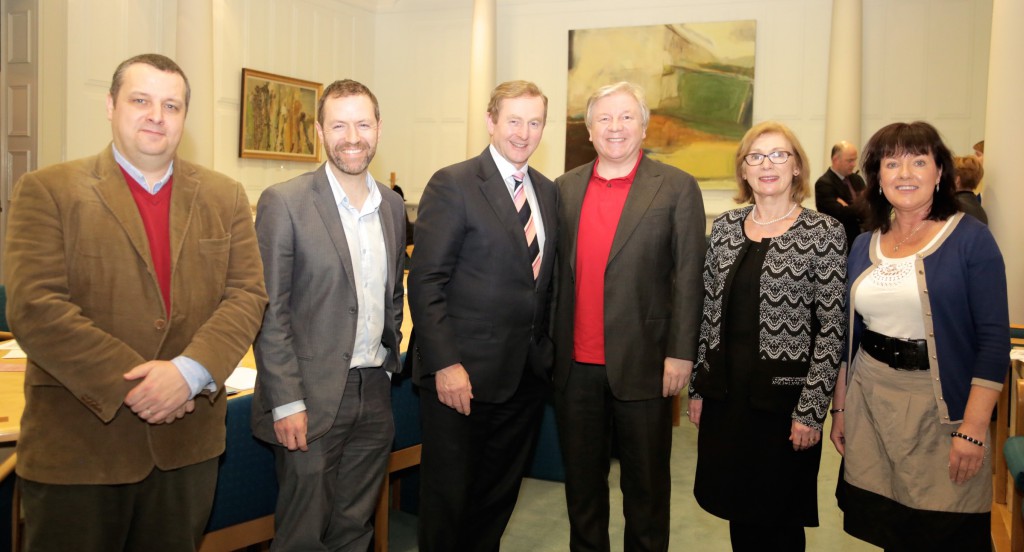This is part of the Atheist Ireland delegation that met the Taoiseach and Minister for Education last week, in the first formal meeting between an Irish Prime Minister and an atheist advocacy group in the history of the State.
The photograph is significant for who it does not not include.
Our delegation included a primary school teacher and a secondary school student, both of whom told the Taoiseach and Minister for Education of their experience of religious discrimination the education system.
Unfortunately we had to be photographed without them, as they had to attend the meeting anonymously.
Why? Because they, quite prudently, feared further recrimination if it was known that they had highlighted the discrimination that they already faced.
This is because our Equality Acts give exemptions to religious schools that allows them to discriminate on the ground of religion, against students and teachers, in order to protect the religious ethos of their institutions.
And the Irish State, despite its obligation to protect the human rights of students and teachers in the education system, has ceded control of the running of the schools to patron bodies, 90% of whom are Catholic Bishops.
You can read more detail in our report of the meeting here.
The meeting marks the start of an ongoing dialogue process, in which we will have detailed follow-up meetings with Department officials and Ministerial advisors about the changes that we believe are needed to respect our fundamental rights.
After several of these follow-up meetings, we will be in a better position to judge how positive the dialogue has become in practical terms.
Pictured left to right are John Hamill, who runs Atheist Ireland’s blasphemy law campaign; Derek Walsh, who told the Taoiseach of his experience as an Irish parent of religious discrimination in his child’s education; Enda Kenny, Taoiseach; Michael Nugent, chairperson of Atheist Ireland; Jan O’Sullivan, Minister for Education; Jane Donnelly, Human Rights Officer of Atheist Ireland.

Did the Taoiseach say whether he would get back to you regarding any of the issues raised, or was this simply an opportunity to highlight issues?
Did the Taoiseach indicate whether any changes might be considered to the current educational situation?
Excellent work Michael. There might be a chance at real social change for the better.
Here in the States, when a child is part of a lawsuit to push-back against religion, they’re frequently hounded out of the district or even the town/city they live in. So I perfectly well understand why they’re hiding and support it.
The concept of ‘privilege’ has been so abused the last few years that it’s hard to find a word to describe the freedom – limited as it may be – that some of us have to criticise religion.
Few of our ancestors had this privilege; few people in the rest of the world have it now.
It’s a privilege which should be extended rather than apologised for; and it shouldn’t be wasted by holding our tongues.
You’re doing God’s work, Michael, if you’ll permit me the joke. Reading your blog the past few months has opened my eyes to the situation in Ireland, and made me appreciate the privileges of secularism I enjoy in America, specifically my city of New York, all the more.
Thanks for the positive feedback.
Citizen Wolf, it is the start of a dialogue process and we will be meeting again to follow up on progress. In practice, the follow-up meetings with Department officials may be more productive in terms of the detail of specific issues.
@JetLagg,
I had kind of assumed Ireland was highly secular like much, if not most, of Northern Europe. I was rather surprised to find out it was far more religious than countries like England, Sweden and Norway and is, in fact, far closer to many of the Southern European countries like Italy, Greece and Portugal.
This is an important milestone. Keep chipping away, MN.